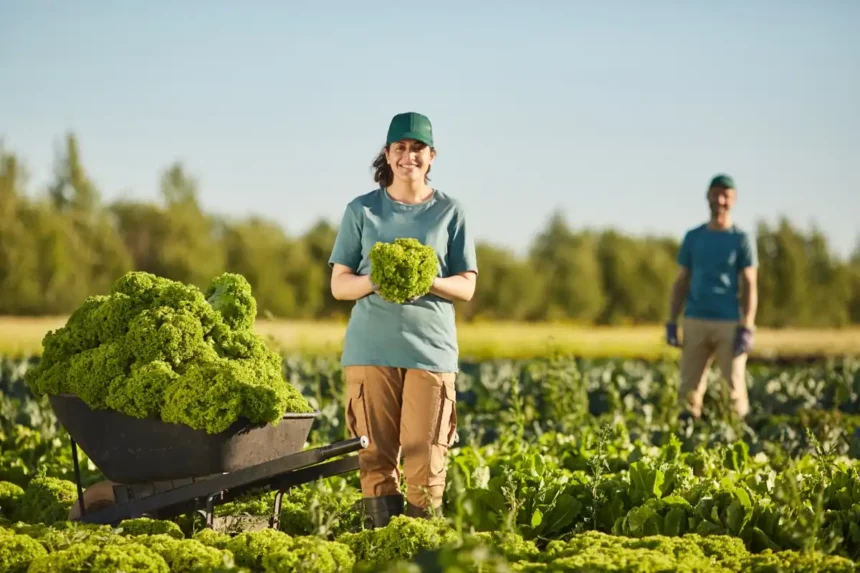Hello Chemical Free Farmers, Today we came up with great information related to the Indian Organic Farming Grant. In recent years, the Indian government has begun pushing towards healthy, sustainable, chemical-free food practices. These grants allowed farmers to implement environmentally friendly organic farming methods. Due to the diverse climatic conditions in many states, organic growers are increasing every year. In this post, we explore the list of government grants (financial support) supporting organic farming in India, as well as the eligibility criteria and the application process for organic farming in India.

Need for government support
- The advance costs for implementing organic practices are high.
- Farmers must spend some money on organic certification.
- Usually, many farmers and growers are not aware of the benefits of organic crops.
- Many farmers have very limited access to organic input, especially in rural/village areas.
- The biggest challenge is marketing organic crops and produce.
The role of the Indian government in promoting it
- Central and state level departments provide technical and financial support for organic farming through grants.
- These programs also provide access to national and international markets through organic farming certification and awareness programs, due to the benefits of organic food.
Objectives of Central and State Government Grants
- The main objective is to enhance the adoption of organic farming across all states, from rural areas to urban areas.
- These regulations also guarantee chemical-free food, soil health and the environment.
- This will also increase the export of organic products from India.
Central government grants schemes
A. Pkvy- Paramparagat Krishi Vikas Yojana
- This scheme is to encourage cluster-based organic farming practices.
- What’s in it:
- Organic agriculture offers subsidies of up to £50,000 per hectare.
- This financial support lasts for three years.
- This scheme supports the acquisition of organic certification and promotion of organically grown products in marketing.
- It also provides technical organic farming training to farmers.
- Apply for grants and access”
- You will need to go through your local farm office to process your application.
B. Movcdner – Development of mission organic value chains in the northeast region
- The main goal of the Indian government is to boost organic farming in India’s northeastern states.
- What’s in it: This scheme provides assistance in obtaining organic certification and marketing for organic produce.
- These grants can be used to build cold storages for farming and produce packaging units.
- Who is eligible: Farmers, entrepreneurs and agribusiness in the northeastern region.
- Applying method: Process applications through the Northeast Agriculture Bureau.
In case you miss it: Government support and policies of the ZBNF in India

C. NMSA – National Mission for Sustainable Agriculture
- The main purpose is to implement sustainable agricultural practices that are environmentally friendly.
- What’s in it: Provides subsidies for biopesticides, biofertilizers, fertilizers, and insect compost. It also provides grant support for integrated agricultural systems (organic farming along with livestock agriculture).
- How to get support: Farmers can submit applications to implement the scheme through the state’s agricultural sector.
State-Level Grant Scheme for Organic Farmers
A. TNOFP – Organic Agricultural Policy in Tamil Nadu
- This policy will help farmers with subsidies and organic farming technology training programs.
- The scheme provides special grants to women and small farmers who own 1-5 acres of land.
B. Sim – Sikkim Organic Mission
- With the support of the Indian government, Sikkim has become India’s first fully organic state.
- This mission offers free organic certification, bio-fertilizer and compost fertilizer subsidies.
- This scheme also helps organic farmers sell their produce in India and other countries.
C. MPOFPP – Madhya Pradesh Organic Agricultural Promotion Program
- The scheme supports farmers ready to move to organic farming.
- It also helps farmers to hold organic fairs and exhibitions with produce.
D. Rpof-Promotion of Organic Farming in Rajasthan
- Farmers can use this financial aid to adopt organic farming practices and techniques.
- Many farmers have received training and organic certification from the state government.
- To make use of these, farmers can contact their local farming department.
Organic farming eligibility for central and state government grants
- You must be a farmer involved in the agricultural sector.
- You need to be interested and ready to grow crops in organic practices.
- You must be a resident of the implemented area for financial assistance.
- You must provide evidence of land ownership or land lease agreement.
- You must register for a government-recognized organic agricultural training program.
In case you miss it: Spirulina cultivation subsidies: Indian government’s plan to encourage Spirulina farmers

Application process to receive organic farming grants
- First, government schemes need to be filtered based on region and crop type.
- Have a variety of evidence for land ownership, residency and bank account details.
- We recommend preparing a business plan that includes all aspects, from land to organic input.
- Fill out the appropriate form with your local farming office and submit all the necessary information.
- You should attach your identity like an Aadhar card, as well as all other necessary documents and project business plans.
- It exists when someone in the agricultural sector visits to verify the land.
- Continue to check the application status for approval.
- Once approved, the funds are usually paid into your bank account in installments.
- Compliance with the organic farming guidelines provided by the Indian government must be ensured.
Tips for maximizing your profits
- Keep monitoring the Agricultural Office and official website for future updates to various grant schemes.
- They connect and network with local farm groups to share the resources and knowledge of organic farming.
- To achieve your goals, you will need to participate in organic agricultural technology training sessions and workshops conducted under various schemes.
- For better profits, we grow organic herbs and spices like organic saffron.
In case you miss it: A comprehensive guide to organic farming in the village

Why is it difficult to access and use organic farming grants in India?
- Many farmers are not aware of the government grants or subsidies available for organic farming input.
- Once applied, the approval process takes a lot of time.
- Obtaining organic certification due to high standards is a very difficult task.
How the Indian Government improves the process
- By simplifying all scheme application processes.
- Central and state agriculture sectors should bring awareness of organic farm benefits by running campaigns.
- All states need a dedicated helpline to help farmers, from the application process to grant approval.
What to expect from organic farming in the near future?
- Many people are aware of foods that are free of chemicals.
- Every year, demand for organic products is increasing exponentially in India and around the world.
- The practice of organic farming can lead to sustainable development.
- Expect the future with technology and innovation to improve organic growth practices.
In case you miss it: Organic Agriculture vs. Natural Agriculture (ZBNF): Key Principles and Differences

Conclusion
These government financial ascent schemes support farmers ready to adopt organic farming practices for the sustainability and production of healthy foods. It is very easy to secure government funding for an organic farm in India.
These dedicated organic farming grants provide not only financial support but also growth in the sustainable agricultural sector. Indian farmers need to use these grant opportunities to improve their livelihoods and contribute to a healthy world. Farmers need to make the most recent update on organic farming subsidies from the Indian government due to recent changes in these schemes.








